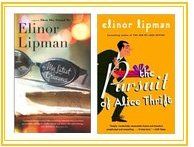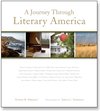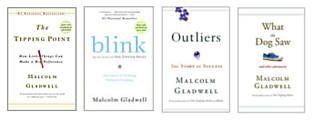Blogging & Musing...
 Tim Bissel is a grown man—a writer and professor of writing—who's obsessed with videogames. In fact, he considers them a budding art form.
Tim Bissel is a grown man—a writer and professor of writing—who's obsessed with videogames. In fact, he considers them a budding art form.
In his new book, Extra Lives: Why Video Games Matter, Bissel says the games are “as gripping as any fiction" he's come across”—and, get this—that Grand Theft Auto IV is ”the most colossal creative achievement of the last 25 years.” That's quite a claim.
What excites Bissel, really excites him, is the interactive nature of games, the idea of...
turning narrative into an active experience,
something which film [and literature] is
unable to do in the same way.
So it got me to thinking about the history of the novel and film, both of which were once were considered upstarts—having to prove their artistic worth to skeptics. Right now, Bissel isn’t impressed with the “literary” skills of the video game designers. But given time, won’t those skills—dialog and characterization—develop just as they did in fiction and film?
And consider this—literary fiction is the only art form that allows us to slip the boundaries of our own skin and enter another’s. When we identify with literary characters, we think and feel as they do…we BECOME those characters for the duration of the book. But we’re still passive participants, only along for the ride.
Now think what it might be like, say 10-15 years from now, to enter into a book or film’s action … to particpate actively … to affect its outcome. How will that work? I don’t know, but … I’m getting out my daughter’s old joypad to practice!
Questions for Book Clubs
Have fun—consider what a book club might be like 20 years from now. Will we all come with our little laptop video games? Will we discuss what actions each took…and how we changed the direction of the plot?
See Part 2 of this post.
 Jeeesh! Long time since I posted anything on this poor lonely blog. Why so long? Turns out, I’ve been reading...a lot.
Jeeesh! Long time since I posted anything on this poor lonely blog. Why so long? Turns out, I’ve been reading...a lot.
Which brings up an intriguing comment by Jonathan Franzen in the Sunday New York Times Book Review (6/6/10).
Haven’t we all secretly sort of come to an agreement...that novels belong to the age of newspapers and are going the way of newspapers, only faster?
As an old English professor friend of mine likes to say, novels are a curious moral case, in that we feel guilty about not reading more of them but also guilty about doing something as frivolous as reading them…
Okay, so it’s tongue-and-cheek. Or not. Still, I’m wondering...
Questions for Book Clubs
- Who’s “we”—as in “haven't we all secretly"? And why is it a secret agreement? Because nobody wants to talk about it?
- Does he really think the novel (printed and digital...or just printed) is on its way out? If so, what will replace it: graphic novels...or the Internet...or video games?
- Are novels "frivolous"? Has anyone told book clubs yet?
![]() If you love books on a certain theme…you’ll love Flashlight Worthy Book Recommendations, a new site that lists books thematically. So far the site has 370 different lists, in 50+ categories, with nearly 5,000 books. Here’s a tiny sample:
If you love books on a certain theme…you’ll love Flashlight Worthy Book Recommendations, a new site that lists books thematically. So far the site has 370 different lists, in 50+ categories, with nearly 5,000 books. Here’s a tiny sample:
Flashlight Worthy Lists
Books About . . .
Families in Fiction and Memoir
Women of Another Era
Abraham Lincoln
Dystopia
Crime Fiction–About Women By Women
Love–That Your Club Probably Hasn’t Read Yet
African-Americans–Not Just for Black History Month
WASPS
Madness We Can All Relate to
With the Sea in Sight
So head on over to the website to find some great ideas and recommendations for your book club…or just for yourself.
 You read ... and read ... and you read. And you think you’re pretty well up on authors.
You read ... and read ... and you read. And you think you’re pretty well up on authors.
Then you come across one who’s written 8 books—8 mind you!—and you don’t have a clue. You feel so, so ... can I say it... sob ... so UNREAD!!
That’s what happened with Elinor Lipman. Somewhere I came across her name. Hmmm ... that’s vaguely familiar, but only vaguely ... I check her out ... and holy cow! Stunned I am—by her body of work and the fine reviews she’s garnered over the years. So where have I been?
Why isn’t Lipman on the lips of every book club member in the country? She’s funny, smart, perceptive…and her dialogue crackles. We should be reading her!
I’m working my way backward through her books. So far I’ve read My Latest Grievance, The Pursuit of Alice Thrift and Dearly Departed. Wonderful... Check out our reading guides for Lipman’s other 4 novels — they’re on our LitGuide index...L for Lipman!
I plan on reading all 8 novels ... sometime.
 Rarely do I review new books. It’s hard enough to get through my own pile for the website, let alone take on brand new ones. So usually I decline review requests.
Rarely do I review new books. It’s hard enough to get through my own pile for the website, let alone take on brand new ones. So usually I decline review requests.
But this book was different. A Journey Through Literary America looked so intriguing…I couldn’t resist the offer. And what a smart decision! This has to be one of the MOST gorgeous books ever born.
Journey is a big coffee-table-sized book, chock-a-block-full of sumptuous photos—the homes of America’s most beloved authors and the locales of their stories.
With wonderful prose to boot—biographies and personal incidents that make up the authors’ lives, as well as the history and inspiration behind their works.
This is a gorgeous book—the perfect gift for your favorite book lover. Which is you, of course!

 I just finished My Mistress’s Sparrow is Dead (see our Reading Guide), a volume of 26 short love stories edited by Jeffrey Eugenides (author of Middlesex). It’s been a long time since I sat down to read short stories, and I found it challenging.
I just finished My Mistress’s Sparrow is Dead (see our Reading Guide), a volume of 26 short love stories edited by Jeffrey Eugenides (author of Middlesex). It’s been a long time since I sat down to read short stories, and I found it challenging.
As my friend Nan says, reading short stories is “like opening a jewel box.” She’s right: stories are polished little gems…which is what makes them difficult. They’re written with economy—lacking the luxury of 100′s of pages for a more leisurely expansion of plot and character. Everything is compressed—precise—each word or idea contains significance, pointing to something beyond itself. Stories are packed with meaning.
They also tend to be dark, edgy, with more bite than longer fiction. Stories situate a character, an ordinary individual, in a moment of crisis—and within 2 to 20 pages, say, the author must resolve that crisis. Everything is intensified.
Finally, there’s the stop-and-go quality of a story collection, which as opposed to the long arc of a novel can be discomfiting. You get involved with the story and characters…only to have it end quickly. Then on to the next story—working to come up to speed again. It’s like establishing new friends, over and over, only to keep losing them.
But I found, reading through Eugenides volume, that the stories haunted me, out of all proportion to their length. And that’s the beauty of a short story.
For Book Clubs
Take a break from novels and try our LitCourses—each based on a single story. The courses are short, fun, and packed with good information. You’ll find a study guide for each story—perfect to help with discussion. Take a look!
 If you’re a Malcolm Gladwell fan, then you’re in luck! We have Readers Guides—with DISCUSSION QUESTIONS—for all 4 of Malcolm Gladwell’s books. Read and discuss any of the books at your book club!
If you’re a Malcolm Gladwell fan, then you’re in luck! We have Readers Guides—with DISCUSSION QUESTIONS—for all 4 of Malcolm Gladwell’s books. Read and discuss any of the books at your book club!
Site by BOOM
![]()
LitLovers © 2024
